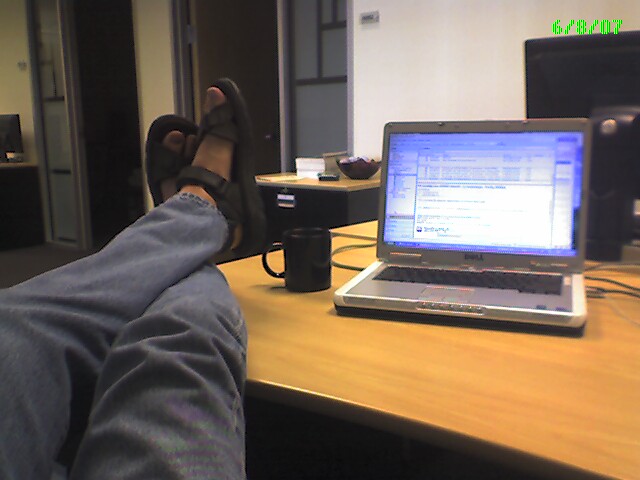How to Stay Focused When You’re Tempted to Slack Off – in 3 Simple Steps
By Ali Luke
June 12, 2012 • Fact checked by Dumb Little Man

Do you ever find yourself staring at web comics or news sites (or even blogs on personal development…) when you’re supposed to be working? Sure. We all do, right?
We all lack focus at times – especially if we’re struggling with a hard or boring task. And with computers / tablets / phones close to hand, we’ve got a world of distractions at our fingertips.
Don’t feel bad if you don’t always concentrate as well as you’d like. Staying focused takes effort, and practice … but by following these steps, you can hugely increase your chances of having a productive day.
Whatever you’re working on, you should have some sort of end goal: you need to know once you’re done with your current task.
All too often, though, we work a bit aimlessly – perhaps checking emails, then filing some papers, then typing a few words on that dull report, then answering a couple of emails, and so on.
Each time you switch to a new task, write down in a few words what you’re aiming to accomplish.
For instance:
- Write Section 1 of Big Report.
- Respond to all emails from yesterday.
- File all the papers currently in my in-tray.
- Draft a 300 word article for our client newsletter.
- Return all phone calls that came in this morning.
…and so on. This is an efficient way of working: instead of splitting your focus between a bunch of different things, you’ll be concentrating on one task at a time. You’ll also have a clear end point in sight – which is great for motivation.
Step #2: Close Down Any Distractions
There are two types of event that throw you off-task when you’re working: interruptions and distractions.
You can’t always do much about interruptions. These are external events, like your phone ringing, or a colleague dropping by to ask a question. (You might want to let your phone go to voicemail, though, or put on headphones to prevent people striking up a casual conversation.)
Distractions, though, are under your control … even if it doesn’t always feel that way! A distraction is the urge to check your email, or to see whether your favorite web comic has been updated … and so on.
If you’ve got your inbox open, close it. If you have Twitter, Facebook, web forums, or other social sites up on your screen, close them. (Even if monitoring these is part of your job, you can almost certainly close them for 15 minutes while you do some focused work.)
Don’t leave yourself open to distractions and assume that willpower will be enough to keep you focused. Even the act of glancing at an incoming email to see whether it’s important or not is enough to break your flow.
Step #3: Work in Short Bursts
Nobody can focus for hours at a time – in fact, most people can only concentrate intensely for around 25 – 45 minutes. Try to work in short bursts, with brief breaks in between.
So that you stay on track, set a timer going. I like Tick Tock Timer, but there are plenty of others you can try, like e.ggtimer. Start off with 30 minutes, and see whether that seems about right for you.
While the timer is running, you should stay focused on the task at hand.
As soon as the timer goes off (even if you haven’t finished the task), stop. Take a quick break to grab a glass of water, stretch your legs, look at webcomics, or whatever you want to do. Then set the timer again, and start back on your task.
(You might find that it’s helpful to time your breaks, too, if you struggle with getting back to your work.)
If it’s not easy or appropriate for you to take a break from your work, then try switching between high-focus and lower-focus tasks. For instance, you might spend 30 minutes working on your big presentation for next week, then spend 15 minutes answering emails, and so on.
By following these steps, you create a structure around your work that makes it easier for you to concentrate – even on days when you’re tired, or when none of your tasks seem very inspiring. Give them a try today, and see what a difference they make.
Do you have any tips for staying focused? Which of these steps has helped you most? Let us know your thoughts in the comments below.
 |
Written on 6/12/2012 by Ali Luke. Ali is a writer of fiction and non-fiction and a writing coach. She blogs about writing on her site, Aliventures.com, and has a free ebook “How to Find Time For Your Writing” available when you join her writing newsletter here. | Photo Credit: Tim Patterson |


